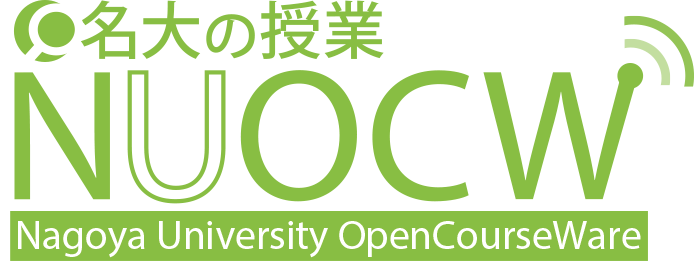Criminal Procedure Law

| Lecturer | Yasuhiro MIYAKI, Associate Professor |
|---|---|
| Department | School of Law / Graduate School of Law, 2012 Fall |
| Recommended for: | 3rd and 4th year School of Law students (4・週1回全28回) |
Course Overview
To correctly implement the penal code, procedures that identify the facts of a crime and assess the sentence to be imposed are necessary. These procedures are Criminal Procedures (Penal proceedings). In this class, following procedural steps from investigation to prosecution and trial, along with a summarization of each step, we will examine important problems that arise from these procedures.
Key Features
Each class is divided into 4 parts. At the beginning of each class, I will introduce the object of that day's lesson and the general itinerary and. Next, in accordance with procedural steps, I will explain legal concepts and legal interpretations [legal hermeneutics]. I will also give practice problems that we will discuss on the spot. At the end of class, I will comment on the problems and introduce relevant corresponding precedents. The cycle of learning and thinking is repeated each class encouraging the development of knowledge and critical thinking.
Course Aims
Along with the acquisition of elementary and fundamental knowledge of general criminal law proceedings, students will question the implications of the basic institutions of the Criminal Procedure Code. Students will also acquire the habit and ability to think critically.
Textbooks
Lecture outlines, power point slides and handouts.
Course Schedule
| Session | Contents |
|---|---|
| 1 |
Introduction Overview of the criminal procedures of our country [Japan]; from investigation to prosecution, trial, appeal and retrial. |
| 2 |
Lay Judge System [Saiban-in Seido] A brief overview of the lay or citizen judge system [saibanin seido]. |
| 3 |
The Fundamentals of Criminal Procedures Along with an examination of the various fundamental concepts relating to the study of Criminal Procedure Codes including due process and the principle of substantive truth, new inquisitorial systems (including accusatorial and adversarial systems) and old inquisitorial systems, we will go over the basic structure of investigative procedures and trial procedures, and the roles and relationships of the participants in the proceedings. |
| 4 |
The Responsible Parties and Participants of Criminal Procedures Overview of participants of criminal procedures. |
| 5 |
Investigative Law: Overview An explanation of the implications and criteria relating to the distinction between compulsory and non-compulsory investigative duties performed by investigative agencies and why the principles concerning the legality of compulsory measures and constitutional warrants exist. Including specific problems related to asking someone to come voluntarily for questioning, police photography and surveillance, and sting operations. |
| 6 |
Investigative Agencies and Initiation of Investigation Overview of investigative agencies and examination of the initiation of investigation; in particular police questioning and inspection of belongings. |
| 7 |
Arrest and Detention (1) Overview of procedures and requirements of arrest for the purpose of detaining suspects in criminal cases. |
| 8 |
Arrest and Detention (2) Overview of procedures and requirements of arrest for the purpose of detaining suspects in criminal cases. |
| 9 |
Arrest and Detention Basic principles and related legal problems concerning arrest and detention. |
| 10 |
Collection of Material Evidence (1) Legal problems concerning search and seizure. |
| 11 |
Collection of Material Evidence (2) Collection of bodily fluids, etc. |
| 12 |
Collection of Oral Evidence Means by which an oral confession may be collected, in particular the nature of interview of detained suspects. |
| 13 |
Suspects' Rights and Defense Privileges Legal problems concerning the right to remain silent. |
| 14 |
Suspects' Rights and Defense Privileges (2) Legal problems concerning the right to receive assistance from defense counsel, in particular the rights of visitation and communication. |
| 15 |
Principles of Institution of Public Prosecution Basic principles concerning institution of public prosecution in our country [Japan] and the problems relating to and implications of giving wide prosecutorial discretion to prosecution. |
| 16 |
Procedures for Public Prosecution Problems relating to the specification and statement of counts recorded in the written indictment and the implications of "kisojo-ipponshugi," which means that written indictments cannot be accompanied by any other documents or evidence. |
| 17 |
Conditions for Lawful Prosecution The implications as well as types and efficacy of conditions for lawful prosecution. |
| 18 |
Public Prosecution Law: Overview Starting with the court, an overview of the status and authority of parties in lawsuits. Also, principles concerning trial procedures, such as expedited and public trials. |
| 19 |
Preparation for Trial and Trial Proceedings Organization of pre-trial preparation, in particular pre-trial discovery procedure, and trial steps. |
| 20 |
Trial Subject and Counts The implications of trial subject and count system and legal problems concerning the amendment of counts system. |
| 21 |
Evidence Law Overview (1) Basic principles regarding evidence. |
| 22 |
Evidence Law Overview (2) Types of evidence. |
| 23 |
Admissibility of Evidence Including problems concerning scientific evidence, the implications of relevance of evidence. |
| 24 |
Admissibility of Confessions as Evidence Legal regulations relating to confessions, in particular, the limitation of admissibility of confessions as evidence. |
| 25 |
Hearsay Rule (1) The purpose of the hearsay rule and the implications concerning hearsay evidence. |
| 26 |
Hearsay Rule (2) Problems associated with hearsay rule exceptions. |
| 27 |
Trial Overview of efficacy and types of trials |
| 28 |
Summary / Final Exam |
Grading
Grades will be assigned based on final exam score.
Last updated
March 12, 2020
